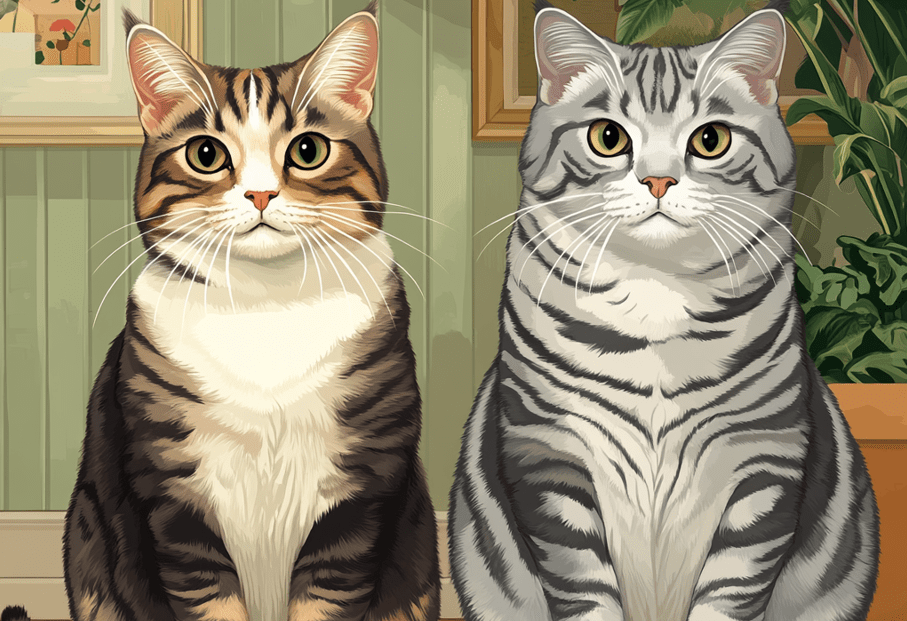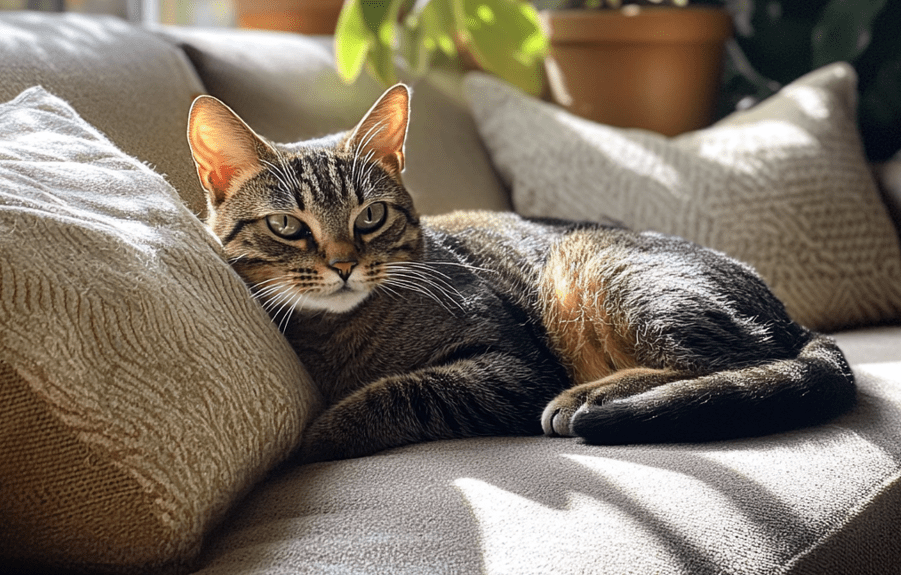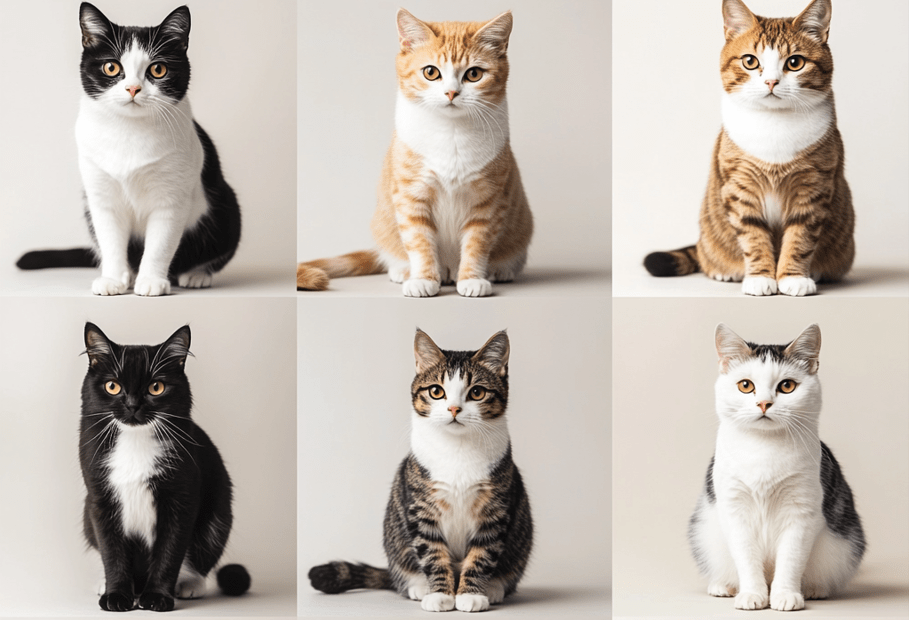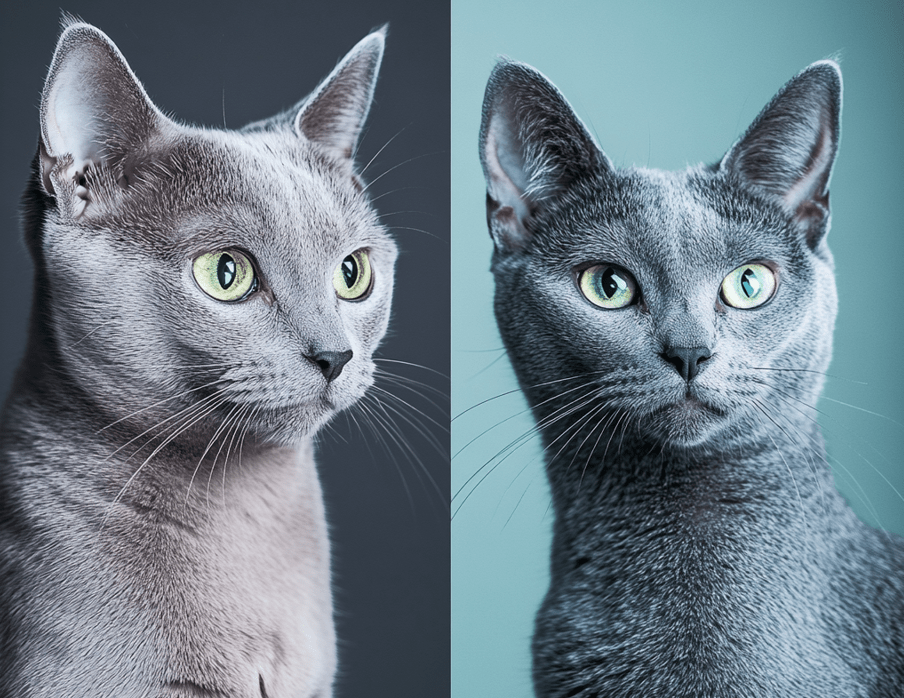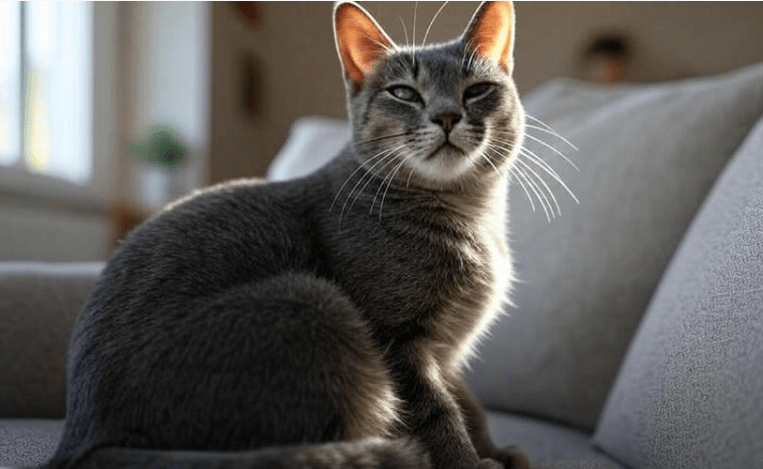
Most pet owners choose Domestic Shorthair cats because these pets naturally exhibit warm behaviour and enjoy being independent with playful instincts. Their short fur and flexible nature make them healthy in all types of living spaces including both small apartments and large houses. Domestic Shorthair cats need medical treatment like other pets because they develop multiple health problems. In this comprehensive guide, we’ll explore the top 10 common health issues in Domestic Shorthair cats and offer practical tips on how to prevent them.
Overview of Common Health Issues in Domestic Shorthair Cats
Despite their strong body Domestic Shorthair cats need to handle various health problems. Shorthair cats encounter several health problems both minor like flea infestation and major such as weight problems and kidney disease. This article explores regular health problems that affect Domestic Shorthair cats while showing you what to do to keep your pet healthy. The issues we’ll cover include:
- Obesity
- Dental disease
- Fleas and parasites
- Upper respiratory infections
- Kidney disease
- Urinary tract infections (UTIs)
- Heart disease
- Hyperthyroidism
- Diabetes
- Arthritis
Learning about Domestic Shorthair cat health risks and setting up protection methods ensures your pet lives happily and healthily for many years.
1.Obesity
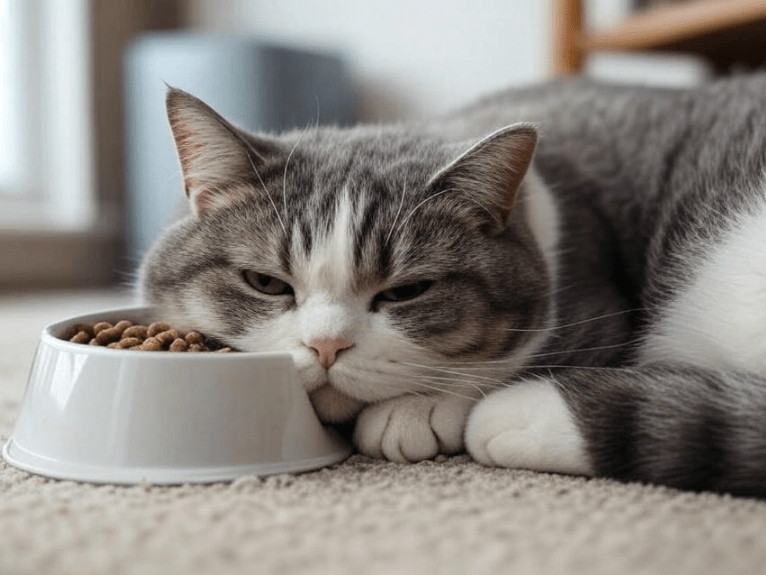
Cats with Domestic Shorthair hair experience obesity frequently and this problem increases their risk of developing diabetes, heart and joint issues as well as heart disease. Cats prefer to stay calm by nature but their excess food intake causes quick weight problems. Indoor Domestic Shorthair cats suffer more from being overweight because they have fewer chances to exercise.
Prevention Tips: A healthy weight balance occurs when your cat receives an appropriate diet and exercise programme. Your cat will stay active while enjoying playtime sessions with exercise toys. The key to keeping your cat healthy is using an accurate measuring tool to prevent excess eating. Work with your vet on finding your cat’s proper weight then create a changed feeding schedule.
2.Dental Disease
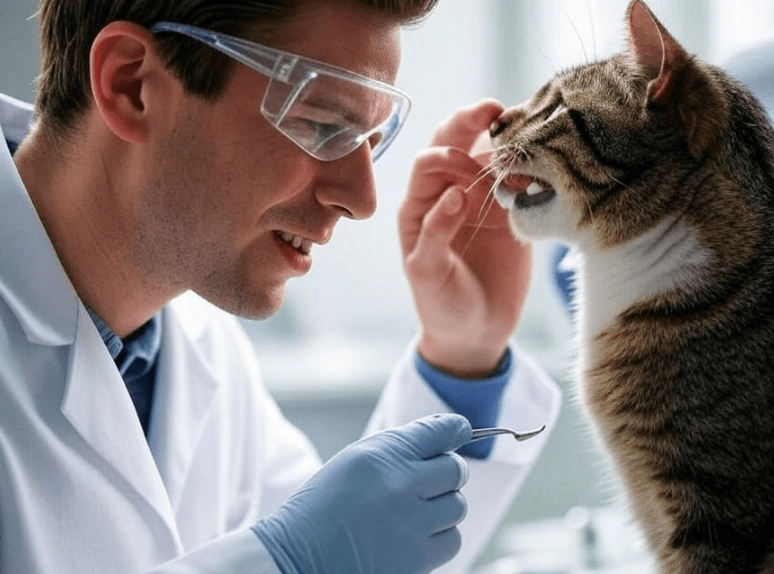
Many Domestic Shorthair cats suffer quietly with dental problems that require attention. Since cats easily develop plaque deposits on their teeth, dental disease causes inflammation of both the gums and bones along with tooth loss without proper care. Poor oral care routines enable dental problems to harm your cat’s teeth and trigger infection throughout their entire body.
Prevention Tips: The most effective way to stop dental disease in cats is through daily tooth brushing. Begin tooth brushing with your cat slowly by using special dental cat toothpaste. Using dental chews or tooth toys can effectively manage plaque formation. You need to arrange regular veterinary appointments to test if your cat needs professional dental cleanings.
3.Fleas and Parasites
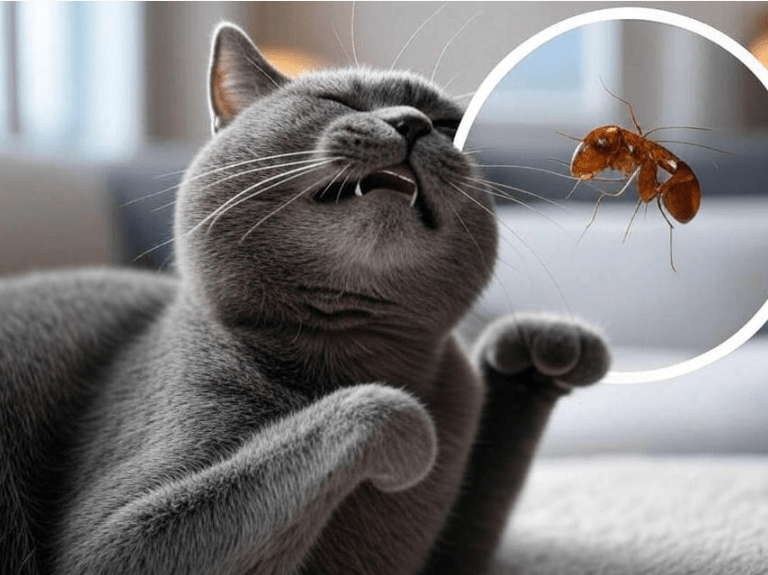
Fleas create problems for Domestic Shorthair cats particularly for the ones who spend time outdoors. Fleas make cats scratch excessively and give them allergic symptoms while transmitting tapeworms to their bodies. The presence of ticks and external parasites in cats can create major medical problems when not handled with proper medical treatment.
Prevention Tips: Consult your veterinarian to get approved flea prevention methods that keep fleas away. You can use topical medicine, pills given by mouth or flea collars as recommended veterinary treatments. Look for fleas and ticks on your cat’s fur during daily cheques and maintain house cleanliness through frequent vacuuming. When your cat experiences fleas you must handle both the animal and household areas to stop further infestation.
4.Upper Respiratory Infections
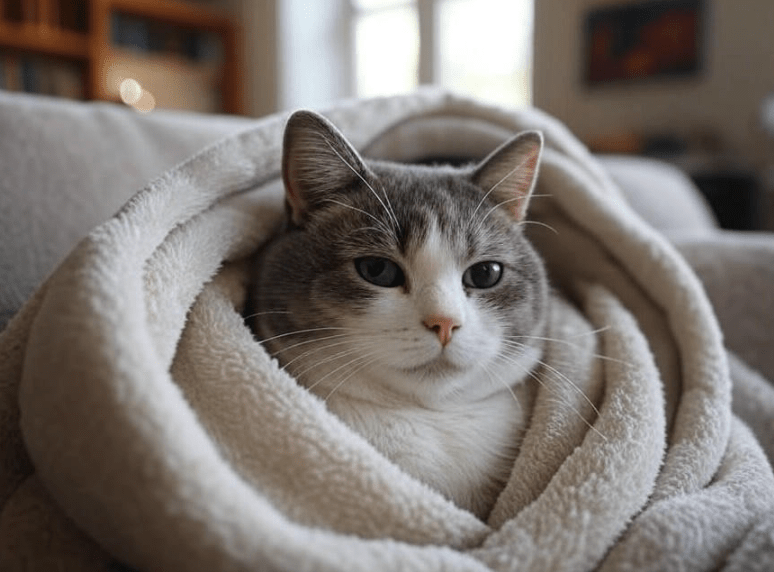
Weakened immune systems make cats more prone to upper respiratory infections. The infections result from two types of germs and make animals sneeze, cough, produce nasal fluid and develop fever symptoms. The risk of upper respiratory infections rises highest among young kitten and senior Domestic Shorthair cats.
Prevention Tips: Keep your cat healthy by updating their vaccinations since vaccines prevent feline herpes and calicivirus viral infections. A fragile immune system requires an indoor living arrangement because potential infections come mainly from outside. Your cat needs a cared-for living space and medical checkups when they show sickness symptoms.
5.Kidney Disease
Older Domestic Shorthairs commonly develop chronic kidney disease as a health problem. As cats grow older their kidneys lose filtering ability. They need to remove harmful substances from blood properly. Kidney disease shows itself through a higher thirst rate, more bathroom breaks, diminished weight, and reduced energy.
Prevention Tips: Feeding your cat balanced meals alongside providing fresh water can support their kidney function when disease usually develops with age. Referring your cat to a vet provides important medical insight early into kidney problems that shape successful treatment results. Cats with kidney disease need to follow specific eating plans while taking medical treatments to control their health.
6.Urinary Tract Infections (UTIs)
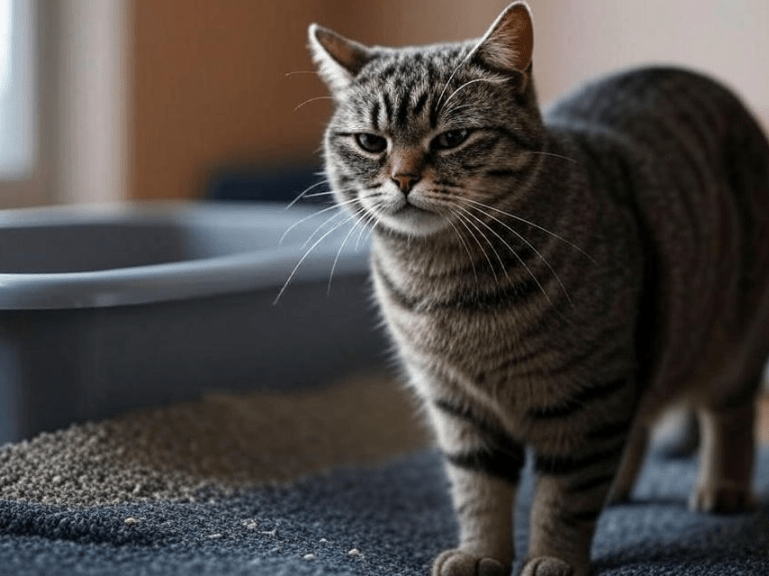
Male Domestic Shorthairs often experience urinary tract infections in their bodies. UTIs create both physical pain and urinary problems plus lead to bleeding in the urine. A UTI left unattended can create problems that progress into bladder stones or kidney infections.
Prevention Tips: Make sure your cat has several clean litter boxes plus enough fresh water to decrease the risk of UTIs. Normally when cats eat foods designed to protect their urine tract they create extra benefits for their overall urinary health. Your veterinarian might suggest different food and drugs to treat constant UTIs in your cat.
7.Heart Disease
Hypertrophic cardiomyopathy and other heart diseases become major health problems for Domestic Shorthair cats. When heart muscle thickening limits its blood pumping efficiency it produces HCM. Heart disease affects many cats yet some breeds suffer from it more often.
Prevention Tips: A healthy weight alongside nutrient-balanced food helps protect your Domestic Shorthair cat from heart disease. Seeing your veterinarian normally plus additional heart testing when needed will let you detect heart issues at an early stage. Your cat will receive medicine to handle their heart issues and live better when they have heart diseases.
8.Hyperthyroidism
Hyperthyroidism affects many senior Domestic Shorthairs. When the thyroid gland produces too many thyroid hormones it causes weight loss even with raised appetites and results in vomiting and hyperactive behaviour. The condition of hyperthyroidism needs medical attention because it brings high risks to the heart.
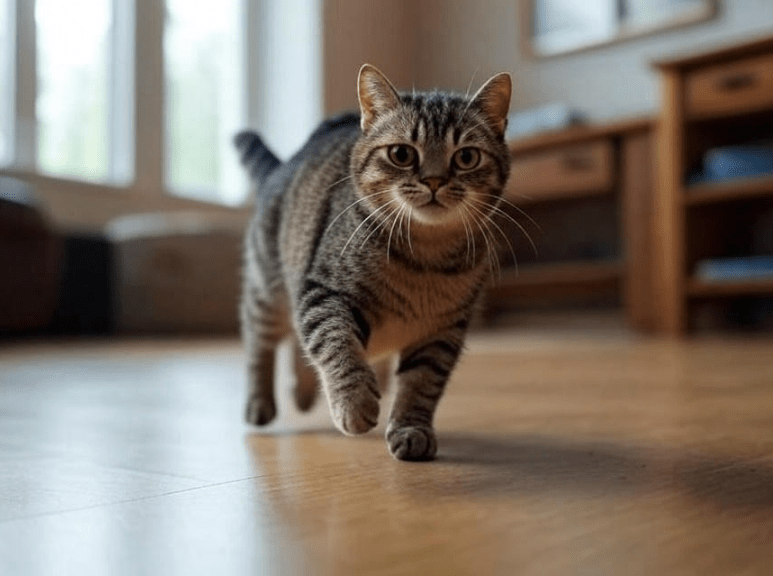
Prevention Tips: Regular cheque-ups with your veterinarian help spot hyperthyroidism early even though this problem mostly develops during senior years. Doctors treat the condition of hyperthyroidism through medicine or radioactive iodine therapy to match the patient’s needs depending on the disease severity level.
9.Diabetes
Diabetes appears often in Domestic Shorthair cats mainly because of their weight problems. When the body cannot make or use insulin effectively it causes blood sugar to rise too high. Diabetic cats show symptoms of extreme drinking, frequent urination and loss of weight along with feeling tired.
Prevention Tips: Protecting your cat from obesity prevents future threats of developing diabetes. Maintaining a proper weight in cats depends on eating well and moving their bodies regularly. To treat the diabetes your cat develops doctors will provide medicines through injections as well as eating plan updates. Managing diabetes early will allow your cat to enjoy a longer healthier life.
10.Arthritis
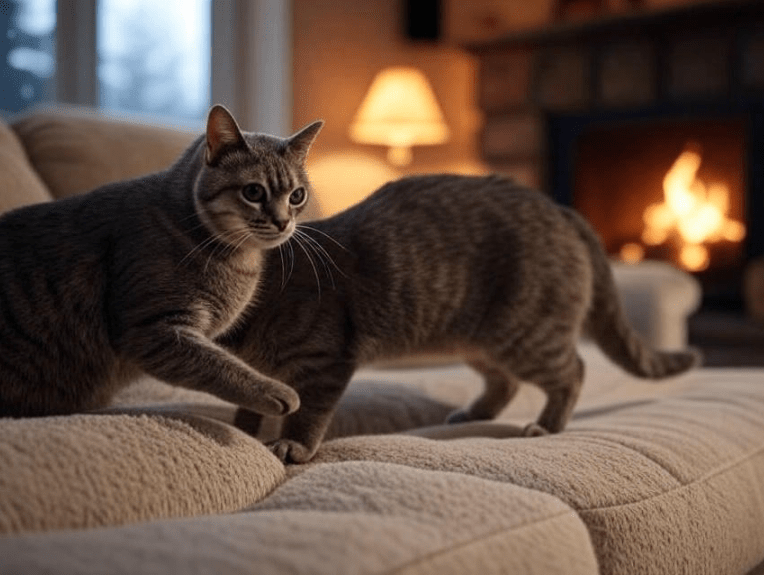
Older house cats develop arthritis which makes them suffer with pain. Domestic Shorthair cats experience arthritis like any other cat breed where it breaks down joint health and causes movement pain and stiffness. Arthritis develops more frequently in overweight cats since their excess weight makes joint strain worse.
Prevention Tips: Help your cat overcome arthritis symptoms through normal weight and regular light exercises. See your vet when your cat experiences joint pain and ask about suitable treatments such as medicines or joint supplements.
Conclusion
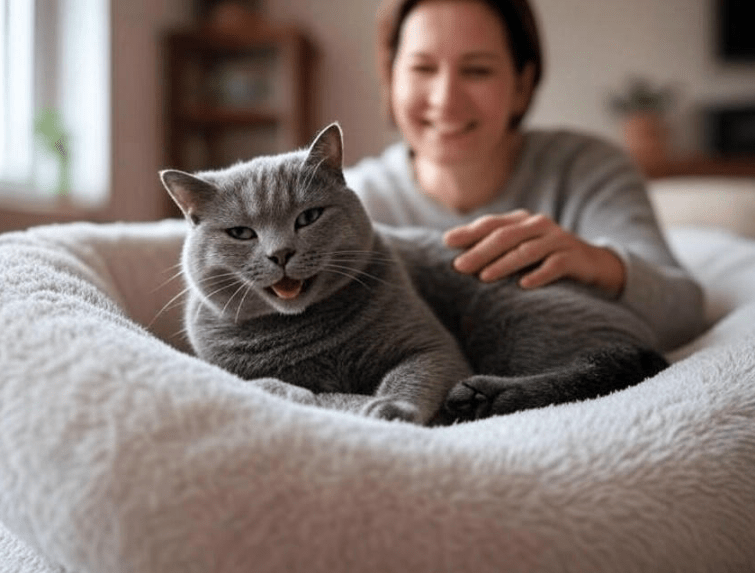
The healthy Domestic Shorthair needs vet care like other breeds to avoid specific medical problems. Knowing your cat’s health risks and starting early safety techniques will help your pet maintain good quality living. routine vet check-ups coupled with correct nutrition, ideal exercises, and suitable care help to keep health problems away from our domestic shorthairs. Keep an eye on your Domestic Shorthair cat’s health to extend his lifespan effectively. If you see signs that your cat is not healthy consult your veterinarian because prompt treatment improves health management results.
Staying aware of the familiar health problems in cats helps you give your pet better life quality.

